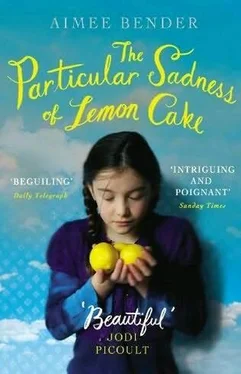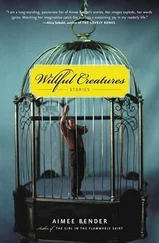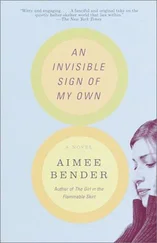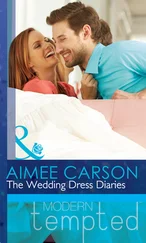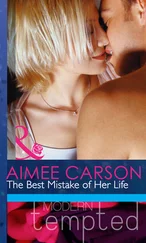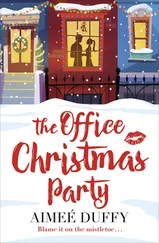Two-toned leaves brushed against the windshield. I had a flash of remembering George outside, in his cap and gown. A vision, of an earlier time.
Your brother, he said.
I waited. He shook his head.
Thanks for the lesson, I offered.
His eyes swept around the car. Outside, the motion-sensor porch light clicked on as a neighbor trotted past with her dog.
You have things to offer, he said, gruffly.
Offer who?
Just to offer, he said. The world.
He didn’t move, and I felt it would be rude to move, so together we continued to stare stiffly out the windshield. A ficus twig tripped down the glass, onto the wipers.
Hey, I heard this story, I said.
He glanced over, eager. A story?
About a kid at school, I said. Want to hear?
Please, he said.
I leaned back, into the firmness of the car seat.
There’s this kid, I said. In my English class? Who was failing, last year. I guess he lives in a kind of run-down neighborhood, over by Dodger Stadium, and he didn’t know he needed glasses, and he saw everything blurry.
I bet he couldn’t read, Dad said. His hands calmed a little with the entrance of narrative, and he reached out the side again to re-adjust the right-side mirror. You can see this?
It’s fine, I said. Should I keep going?
Go, he said. Go on.
Anyway, I said, yes. He couldn’t read. That was the problem. The teachers brought him into testing, and he couldn’t read a word, and he never talked in English class, and he got bad grades for years, and he didn’t even understand how anyone could do this magical mysterious action called reading, and finally one of the teachers said they should test his eyes, and they took him to the eye doctor.
Dad shook his head. That’s the first thing they should check, he said. This crap school system, he said.
I pulled the keys from the ignition.
Well, I said. So they found out he had terrible vision, and he got glasses, and all the teachers stood around him while he tried them on.
Was he a smart kid? asked Dad.
Smart, I said. Definitely. And on went his glasses, perfect prescription, right? And he wore them and suddenly he could read, and not only that, the very act of reading suddenly seemed to him something possible, not like the rest of the world was way ahead of him in this impossible way.
A heartwarming story, Dad said, nodding. I like it. When’s our show on?
Ten minutes, I said. Anyway, it’s not over.
Why not? said Dad, his hand on the door handle. I like where it ended, he said. Let’s end it there.
The kid goes home, right? I said. With his glasses. And his new reading book. And his mom greets him at the door. She’s smiling, because the school called with the good news. But he can see she’s really tired. He hasn’t seen her in years, clearly: years! And she’s totally exhausted, there are these dark circles under her eyes and when she smiles it looks like one of her teeth is a little brown box. They can’t afford the dentist. Right? And his house? It’s a wreck. One side is falling down, and there are cockroaches running across the floor and there’s a big hole in the wall that he thought was a painting.
The motion-sensor light clicked off. Dad’s profile, washed in darkness.
You’re making this up, aren’t you, he said.
No, I said.
What’s the guy’s name?
John, I said.
John what?
John Barbaducci, I said, after a pause.
Dad coughed. Barbaducci, he said. That is the most made-up name I ever heard. Abe Lincoln, just why don’t you call the guy George Washington. So, he said. Fine. Keep going. The kid hates what he sees.
So he steps on his glasses, I said.
Jesus! Dad said, hitting the dashboard. I knew something like that was coming. Now I hate this story, he said. So then he falls behind, correct?
He doesn’t learn to read anymore, I said. But he gets by. He registers as half blind and gets disability.
Oh, now, that is an awful story, said Dad, shaking his head. Awful. He opened his car door.
I stepped out too. Locked the doors.
Nice work with the turn signal, said Dad. Just don’t forget those side mirrors.
I thought it was a good story, I said.
It’s a terrible story, he said, heading to the door. He gets disability and he’s not even disabled! That’s the kind of thing lawyers go nuts about. He thought the hole was a painting?
He fumbled in his pocket at the door.
Here, I said, handing over his ring of keys.
He coughed again, into his hand. I know it’s bullshit, he said, opening the door, stepping in. I know you’re trying to tell me something, but I have no idea what it is. Okay? I don’t think like that. What are you trying to tell me?
Nothing, I said. It was just a guy at my school.
What’s his name again?
John, I said. I grimaced a little, against my will.
John what?
We faced each other, in the hallway. Dad folded his arms.
John Barbelucci, I said.
With a crow, he slapped the homemade pine key-table, fixed at the entryway, made in Mom’s first year of carpentry.
There! he said. He glared at me. You said Ducci, before. I’m sure of it.
Lucci, I said.
Ducci.
Do you have a tape recorder? I said.
I’m sure of it! he said. Close the door, he said.
I shut and locked the door behind us.
So can you read? he said, striding into the TV room. Is that what this is all about?
I kicked off my shoes, and Dad hung his jacket over the back of a chair.
I can read, I said.
It was eight o’clock, on the dot. Both of us zoomed to check the clock. I poured myself a glass of juice, and without a word, we took our spots on either side of the sofa and Dad clicked the TV to our favorite medical program and we rejoiced in the saving of the woman with the heart problem, whose eyes were so large and lovely.
Dad went to work on Friday morning without a word about our discussion, his usual honk waking me up at seven-forty. I drove myself to school, but I didn’t feel like seeing anyone at lunch, so I left before noon and drove home. Took a nap on the sofa and thought about the weekend ahead. Eliza had invited me over to watch a horror movie double feature with the downhill girls. Sherrie would be there, and the last time I’d seen her at a social event she burst into tears when she saw me and ran out of the room. You’re upset, I’d yelled after her, meanly. Now, maybe, she’d bring the new friend. Eliza had just kissed her big student-body crush, under the pinstriped awning by the cafeteria. She said it felt like sailing. Sailing? Several of the girls at the party had had sex, something which sounded appealing but only if it could happen with blindfolds in a time warp plus amnesia. I told Eliza I wasn’t sure if I could go; that I might have to go to Pasadena to visit George in the dorm instead, to help him with a school-wide prank involving graduates and umbrellas. Of course, she’d said, her face melting a little. All morning, I was in an unsettled mood, in part from the conversation with my father, mostly from everything, and I wandered into the kitchen and picked up the phone and called George’s number in Pasadena for the hell of it. Maybe I could make it true after all. His machine picked up, and I left a rambly message about how I had a car if he needed anything, that I’d be glad to come to Pasadena if he needed help running any errands or anything, that I was free on Saturday, that I could do his laundry if he was busy, and I had a car if he needed help with anything at all. Halfway through, he picked up, out of breath. Hey! he said. Rose! All okay? I stumbled around the words. Told him I had a car if he needed anything. I have a car, too, he said, gently. How are you? he asked. I mumbled something about being a senior. I thought I heard a woman’s voice, in the background. Everything okay, Rose? he said. I miss you, I told him, in a voice that went up too high, rolling in the upper registers, an awful wheedle. You too, he said. There was a long pause. Anything else? he said, as kindly as he could. No, I said. Sorry to bother you. You’re never a bother! he said, too quickly.
Читать дальше
